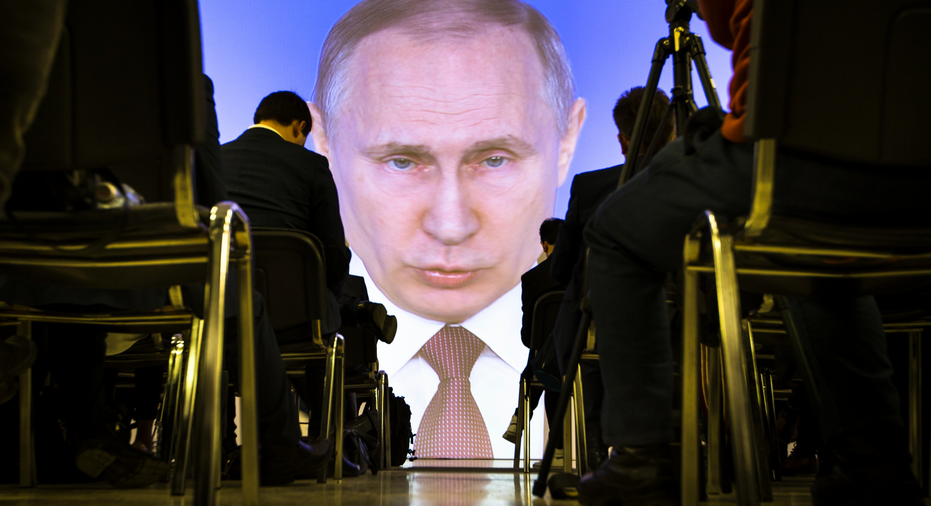Putin boasts of new weapons, vows to boost living standards

MOSCOW – President Vladimir Putin on Thursday boasted of new nuclear weapons and set a series of ambitious goals for Russia, vowing to boost living standards, improve health care and education and build modern infrastructure in a state-of-the-nation address.
The televised speech was timed to closely precede the March 18 election, in which Putin is set to easily win a fourth term. The Russian leader's approval ratings top 80 percent despite an economic slowdown caused by continuing tensions with the West and a drop in global oil prices.
Putin used the occasion to announce that Russia has developed a slew of new strategic nuclear weapons that he said render NATO's U.S.-led missile defenses useless.
"You have failed to contain Russia," he said in a reference to what he described as Western efforts to impede Russia's development with sanctions and military deployments.
Speaking before an audience of top officials and lawmakers, Putin said that Russia needs to make a technological breakthrough to set the foundation for future successful development.
He said that the rapid development of new technologies poses challenges for Russia, warning that the failure to catch up with top economies would mean that "our children and our country won't have a future."
"The scope of that challenge requires a strong response," Putin said. "We are ready to give such a response, we are ready for a real breakthrough."
He emphasized the need to focus on overcoming poverty, saying that 20 million Russians currently live below the official poverty line equivalent to some $180 a month.
Putin also said that Russia must take steps to improve the floundering health care system and aim to increase the average life expectancy, currently at 73, to more than 80 in the next decade.
He noted the need to encourage the development of Russia's vast territories, promising to double spending on new roads and invest in new transportation facilities and modern communications.
The Russian leader said the country needs to focus on developing robotic technologies, artificial intelligence and big data and encouraging venture businesses.
Critics have accused Putin of squandering a chance to modernize Russia and wean it off its overwhelming dependence on oil and gas exports. They also blame him for stifling dissent at home and shattering ties with the West with the annexation of Crimea and support for pro-Russia insurgents.
Such criticism doesn't reach state TV networks and other state-funded media that remain the main source of news for most Russians and help bolster support for Putin.
A Putin victory in the presidential vote would put him on track to become Russia's longest-serving leader since Josef Stalin. The legal limit of two consecutive presidential terms means that Putin won't be able to run again in 2024, but many observers expect him to continue playing the top role in Russian politics even after that.



















